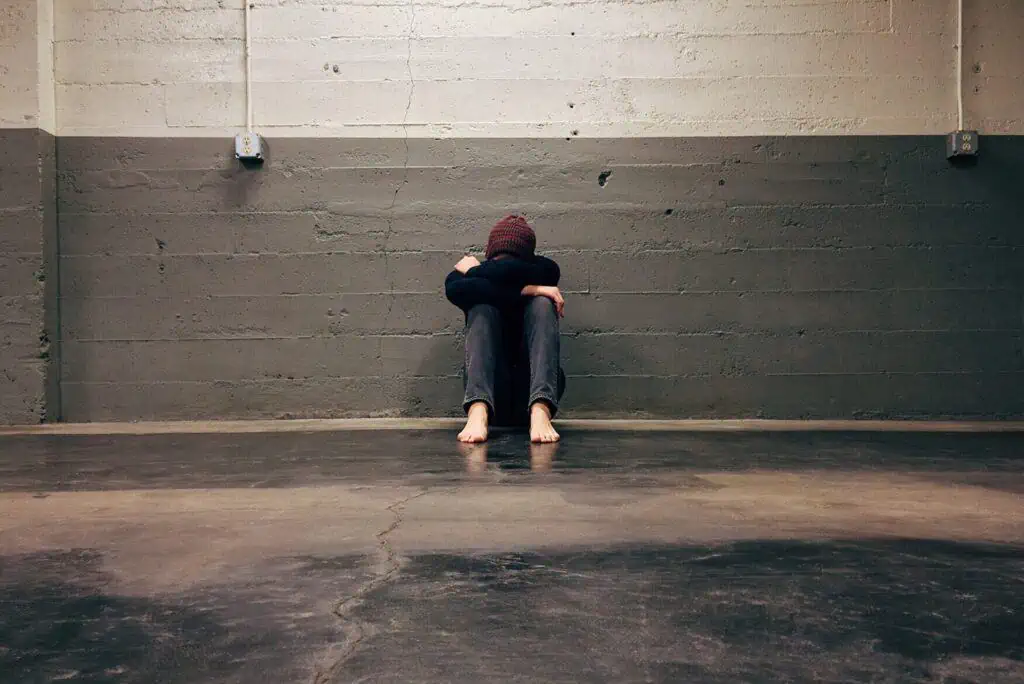Anxiety occurs when a person fears that something terrible is about to happen. It is not a formal, clinical term. Instead, it refers to a feeling of worry or irrational fear that often relates to a particular issue or concern.
Anxiety has been linked to stress. As well as feelings of worry and fear, it mainly involves physical symptoms of a panic, such as muscle tension. An anxiety attack is quite different from a panic attack, which is a symptom of panic disorder. Anxiety often relates to a particular situation or event, although it isn’t always the case.
In this post, we will discuss anxiety and unexpected panic attacks, their symptoms, causes, and treatment. You’ll also get to know the difference between an anxiety attack and a panic attack.
So, let’s begin.

What is an anxiety attack?
An anxiety attack is an intense and sudden episode of fear and anxiety. These attacks can sometimes occur unexpectedly for no apparent reason, but they can be linked to specific triggers.
The term “Anxiety attack” is often used colloquially by many people to describe all anxious responses. Many people use it to describe various sensations, from worries about an upcoming event to intense anxiety to feelings of overwhelming fear, that would meet the diagnostic criteria for a panic attack. To better understand what someone means by “anxiety attack,” it is necessary to look at the context in which the symptoms occur.
Anxiety Attack Symptoms
Symptoms of an anxiety attack vary. Some people with panic disorder might feel mildly apprehensive, while others may experience a large variety of more intense symptoms. These symptoms include:
Restlessness
Irritability
Worry and apprehension
Difficulty concentrating
Feeling pressure and hurried
Sadness
Physical symptoms include:
Headache
Feeling faint
Trembling or shaking
Sweating
Dry mouth
Changes in heart rate
Tightness in the throat and difficulty breathing
Nausea or diarrhea
Anxiety Attack vs. Panic Attacks
If you have ever experienced an intense feeling of fear, terror, or apprehension for no apparent reason, then you may have experienced a panic attack.
If you repetitively experience panic attacks, you have a disorder known as panic disorder. Such repeated, panic disorders or attacks can also be a sign of other underlying mental or medical conditions, including depression, sleeping disorders, or post-traumatic stress disorder (PTSD).
Panic attacks can be scary and confusing for the people experiencing them, they happen suddenly and is usually accompanied by highly intense physical sensations. This often leads a person to believe that they may have a severe mental or medical illness or condition.
Because symptoms of the panic attacks tend to overlap with symptoms of other severe conditions, it is crucial to rule out any medical cause.
Symptoms of Panic Attack
Panic attack symptoms may include:
Fear of dying
Chest pain or discomfort
Feeling of choking
Chills or hot flushed
Feeling dizzy, lightheaded, unsteady, or faint
Heart palpitations, or accelerated heart rate
Numbness or abdominal distress
Feelings of unreality
Sweating
Number of tingling sensations
Trembling or shaking
Sensations of shortness of breath
Anxiety Diagnosis
If you are having symptoms of the panic and anxiety attacks, your first step should be to talk to your doctor. Your doctor will examine you and conduct some lab tests to rule out any medical conditions that might be causing or contributing to your symptoms. If your doctor found no medical cause, he/she may then refer you to a mental health professional for further evaluation.
Because an anxiety attack isn’t a formal diagnosis, you may be diagnosed with a type of anxiety disorder such as panic disorder or generalized anxiety disorder, depending on your symptoms. Your doctor may ask questions related to your symptoms to determine a diagnosis based on criteria found in the diagnostic and statistical manual of mental disorders.
Causes
Anxiety disorders are complex conditions influenced by a combination of genetic, environmental, and psychological factors. Genetic predisposition plays a role, as individuals with a family history of anxiety are more likely to experience it themselves. Brain chemistry imbalances, specifically involving neurotransmitters like serotonin and dopamine, are linked to heightened anxiety responses.
Traumatic life events, such as accidents, abuse, or loss, can trigger anxiety disorders, especially post-traumatic stress disorder (PTSD). Chronic stress and ongoing stressful situations can also contribute, gradually elevating anxiety levels. Childhood experiences, such as overprotective parenting or a lack of emotional support, may set the stage for developing anxiety disorders in adulthood.
Neurobiological factors involving the amygdala, responsible for processing fear, and the prefrontal cortex, involved in decision-making and emotional regulation, contribute to an exaggerated fear response. Additionally, certain medical conditions and substances like caffeine, alcohol, and illicit drugs can exacerbate anxiety. Overall, anxiety disorders stem from a complex interplay of genetic vulnerabilities, brain chemistry, life experiences, and environmental stressors.
Anxiety Disorder
Some anxiety disorders can cause what people describe as an “anxiety attack.” Each of these anxiety disorders association has a specific set of symptoms. These mental health conditions also have different causes or can be triggered by certain situations.
Generalized Anxiety Disorder (GAD) Generalized Anxiety Disorder (GAD) involves persistent worries and fears that disrupt daily activities and a constant sense of impending danger. Those with GAD experience chronic anxiety without clear reasons and often display physical symptoms such as insomnia, stomach problems, restlessness, and fatigue.
Panic Attacks and Panic Disorder Panic disorder is marked by unexpected, recurring panic attacks and a fear of experiencing them again. Agoraphobia, the fear of being in situations where escape is difficult, can accompany this disorder. People with agoraphobia might avoid public places and confined spaces like airplanes.
Obsessive-Compulsive Disorder (OCD) Obsessive-Compulsive Disorder (OCD) involves uncontrollable, distressing thoughts or behaviors. People with OCD may have obsessions like fearing harm to others or forgetting to do something important. Compulsions, such as excessive handwashing, are common attempts to alleviate these anxieties.
Hoarding Disorder Hoarding Disorder is characterized by difficulty discarding possessions and an excessive attachment to even insignificant items. This leads to cluttered living spaces, as individuals attribute emotions and value to objects. Discarding items can trigger strong feelings of anxiety, guilt, or sadness.
Phobias and Irrational Fears Phobias are intense, irrational fears of specific objects, activities, or situations. These fears pose minimal real danger. Individuals may go to great lengths to avoid their phobia triggers, which unfortunately reinforces the fear.
Social Anxiety Disorder Social Anxiety Disorder (Social Phobia) involves an intense fear of negative judgment and humiliation in social situations. This extreme shyness can lead to avoiding social interactions altogether, with performance anxiety (stage fright) being a common manifestation.
Post-Traumatic Stress Disorder (PTSD) Post-Traumatic Stress Disorder (PTSD) arises after a traumatic event and involves persistent anxiety, resembling an ongoing panic attack. Symptoms include flashbacks, hypervigilance, withdrawal, and avoidance of reminders of the traumatic event.
Separation Anxiety Disorder Separation Anxiety Disorder intensifies normal separation anxieties seen in children. If these anxieties disrupt daily life, such as avoiding school or friends due to fear of separation, it might indicate a disorder. Children with this disorder may become distressed at the thought of being away from their parents.
Treatment
Anxiety treatment are available, and they are effective too. One can use these treatments to treat a diagnosed anxiety disorder. They can also help in reducing general feelings of generalised anxiety disorder as well.
Psychotherapy
Psychotherapy focuses on changing the emotions, thoughts, and behaviors associated with anxiety and panic. You may find different types of psychotherapy, but two that are widely used are cognitive behavioral therapy (CBT) and exposure therapy.
Cognitive-behavioral therapy involves identifying the negative thought patterns that are associated with feelings of anxiety. Once these have been identified, people quickly learn to actively change these thoughts and replace them with more realistic ones.
Exposure therapy can be effective when treating certain types of anxiety, especially specific phobias. People are gradually exposed to a feared situation or object while then practicing relaxation techniques. Eventually, their fear’s source becomes less frightening.
Coping with Anxiety Attacks
Various coping strategies may help those who are experiencing anxiety and frequent panic attacks. These include:
Build Connections: Avoid loneliness by engaging with others. Talking about worries with friends or loved ones can reduce their overwhelming nature. Join support groups or socialize regularly to foster connections and emotional support.
Stress Management: Control stress levels by assessing and adjusting your commitments. Delegate tasks, decline excessive responsibilities, and manage your workload for a healthier balance.
Embrace Relaxation: Regularly practice relaxation techniques like mindfulness meditation, progressive muscle relaxation, and deep breathing. These methods effectively alleviate anxiety symptoms.
Regular Exercise: Incorporate physical activity to naturally combat stress and anxiety. Aim for at least 30 minutes of aerobic exercise most days to enjoy its anxiety-relieving benefits.
Prioritize Sleep: Ensure sufficient sleep of seven to nine hours per night. Quality sleep prevents the exacerbation of anxious thoughts and promotes emotional well-being.
Mindful Consumption: Reduce caffeine and alcohol intake, as they can worsen anxiety. Be aware that nicotine is a stimulant, not a calming agent.
Halt Excessive Worry: Break the cycle of chronic worrying. Develop strategies such as setting aside designated “worry periods,” challenging anxious thoughts, and embracing uncertainty to quell anxiety and manage thoughts effectively.
Wrapping Up
Anxiety attacks can be frightening, but it’s important to remember that they are often normal reactions to difficult situations. If you frequently experience such panic attacks worse, talk to your doctor. Many effective treatments are available, and you can also try self-help strategies. They can also be helpful.





